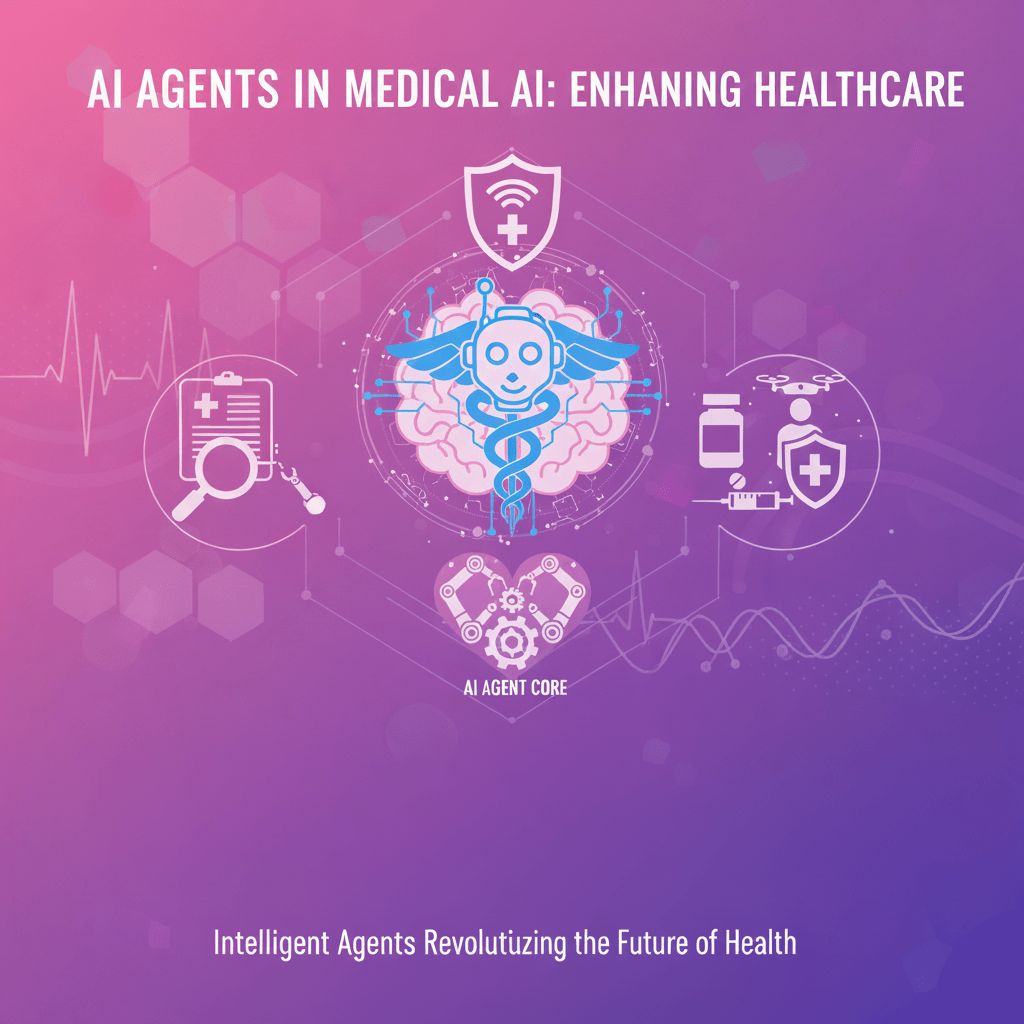“Explore how Medical AI and SalesCloser AI are revolutionizing healthcare with advanced diagnostics and personalized treatments.”
In the rapidly advancing field of healthcare, Artificial Intelligence (AI) has emerged as a game-changer. However, “AI in healthcare” isn’t a single entity. It describes a wide range of technologies designed for very different purposes.
On one hand, you have Medical AI, a clinical tool that assists doctors with diagnostics and treatment. On the other hand, you have tools like SalesCloser AI, a specialized agent designed to enhance a practice’s patient engagement and sales process.
Understanding this distinction is crucial for any healthcare practice looking to innovate. In this post, we’ll explore both.
What is General Medical AI?
First, let’s talk about general medical AI. These are the systems you often see in the news that are transforming clinical care.
Medical AI systems are designed to assist doctors and healthcare professionals by analyzing complex medical data, identifying patterns, and enabling them to make faster and more accurate decisions.
The core strength of medical AI is its ability to process and analyze vast amounts of data—such as images and patient records—at a speed that surpasses that of any human.
Key applications include:
- Diagnostic Imaging: One of the most common uses. Medical AI can analyze X-rays, MRIs, and CT scans to detect early and subtle signs of diseases, such as cancer, diabetic retinopathy, or neurological disorders, with remarkable precision.
- Diagnosis Suggestions: By analyzing a patient’s symptoms, lab results, and medical history, some AI systems can suggest possible diagnoses for a doctor to review.
- Personalized Treatment: Medical AI can also play a role in developing customized treatment plans. Analyzing a patient’s genetic makeup, lifestyle, and response to past treatments can help suggest tailored therapies.
In short, medical AI is a powerful clinical decision-support tool that works in conjunction with doctors to enhance patient outcomes.

How SalesCloser AI Can Grow Your Medical Practice
SalesCloser is a specialized AI sales agent built to help healthcare practices improve their patient engagement and sales process. Its goal is to manage the front-end of the patient journey, not the clinical diagnostics.
While medical AI helps doctors inside the clinic, SalesCloser helps the practice grow and manage patient acquisition outside the clinic.
How SalesCloser AI Helps Your Practice
SalesCloser is designed to address a distinct set of challenges: staff burnout, lost leads, and inconsistent patient experiences.
- Engages Potential Patients: SalesCloser acts as a 24/7 first point of contact. It can instantly talk with potential patients who visit your website or social media, answering their common questions.
- Explains Treatments Simply: It is trained to explain your treatment options in a clear, straightforward manner, helping to educate and build trust with potential patients.
- Guides Patients to Book: The AI agent’s primary goal is to guide interested patients toward booking an appointment, turning a curious visitor into a scheduled consultation.
By using SalesCloser, medical practices can provide a smoother, more personal experience for their patients—all while increasing conversions and saving valuable staff time.
The Benefits: Clinical AI vs. SalesCloser AI
The advantages of each type of AI are distinct and complementary to one another.
Benefits of General Medical AI:
- Increased Accuracy: AI algorithms excel in analyzing complex images and data, identifying subtle patterns that might be missed by the human eye, leading to more accurate diagnoses.
- Early Detection: This technology can spot diseases in their earliest stages, significantly improving patient prognosis and outcomes.
- Better Patient Outcomes: The personalized and data-driven approach enabled by medical AI ensures that patients receive the most effective treatments for their specific conditions.
Benefits of SalesCloser AI:
- Increased Conversions: By engaging every potential patient instantly and professionally, SalesCloser helps convert more website visitors into booked appointments.
- Saves Valuable Staff Time: The AI handles the repetitive, top-of-funnel questions, freeing up your administrative professionals to focus on in-person patient care and complex tasks.
- A Smoother Patient Experience: Patients get immediate, helpful answers to their questions at any time of day, creating a seamless and modern experience from their very first interaction.
The Future of AI in Healthcare
The future of healthcare will likely involve a blend of both types of AI.
We will continue to see incredible advancements in clinical medical AI. Imagine AI integrated with wearable devices for real-time health monitoring or AI accelerating the discovery of new drugs.
At the same time, the healthcare industry will be streamlined by tools like SalesCloser AI. As patients behave more like consumers, they will expect instant communication and convenient, digital-first experiences. AI sales agents will become standard for practices that want to provide excellent service and grow efficiently.
Conclusion
Medical AI is revolutionizing healthcare, offering unprecedented opportunities for improved diagnostics and personalized treatments. It is a powerful tool for clinicians.
Platforms like SalesCloser AI are at the forefront of a different transformation: revolutionizing patient engagement and acquisition. It is a powerful tool for your practice.
By understanding the difference, you can make an informed decision about which technology is best suited to your goals—whether it’s enhancing your clinical capabilities or expanding your practice by delivering a world-class patient experience.
FAQs About AI in Healthcare
What is Medical AI?
Medical AI refers to the application of artificial intelligence technologies in healthcare to assist doctors with diagnostics, treatment, and clinical decision-making. It leverages machine learning to analyze medical data and provide accurate insights.
How does Medical AI improve diagnostics?
Medical AI improves diagnostics by analyzing medical images (like X-rays or MRIs) and patient data with high accuracy. AI algorithms can detect early signs of diseases and identify complex patterns that might be missed by human observation.
Is Medical AI safe?
Medical AI is designed to be a decision-support tool that enhances, rather than replaces, a doctor’s judgment. When developed and deployed ethically, with robust data privacy and security measures in place, it is a safe and powerful way to enhance patient outcomes.
How does SalesCloser AI help a medical practice?
SalesCloser is an AI sales agent, not a medical AI. It helps a practice by allowing them to talk to potential patients 24/7, answering their questions about treatments in simple terms, and guiding them to book an appointment. This enhances the patient experience, increases conversions, and saves staff time.
What is the future of Medical AI?
The future of Medical AI includes deeper integration with wearable devices for continuous monitoring, faster drug discovery, and more accessible telemedicine, all while navigating important ethical and regulatory considerations.






